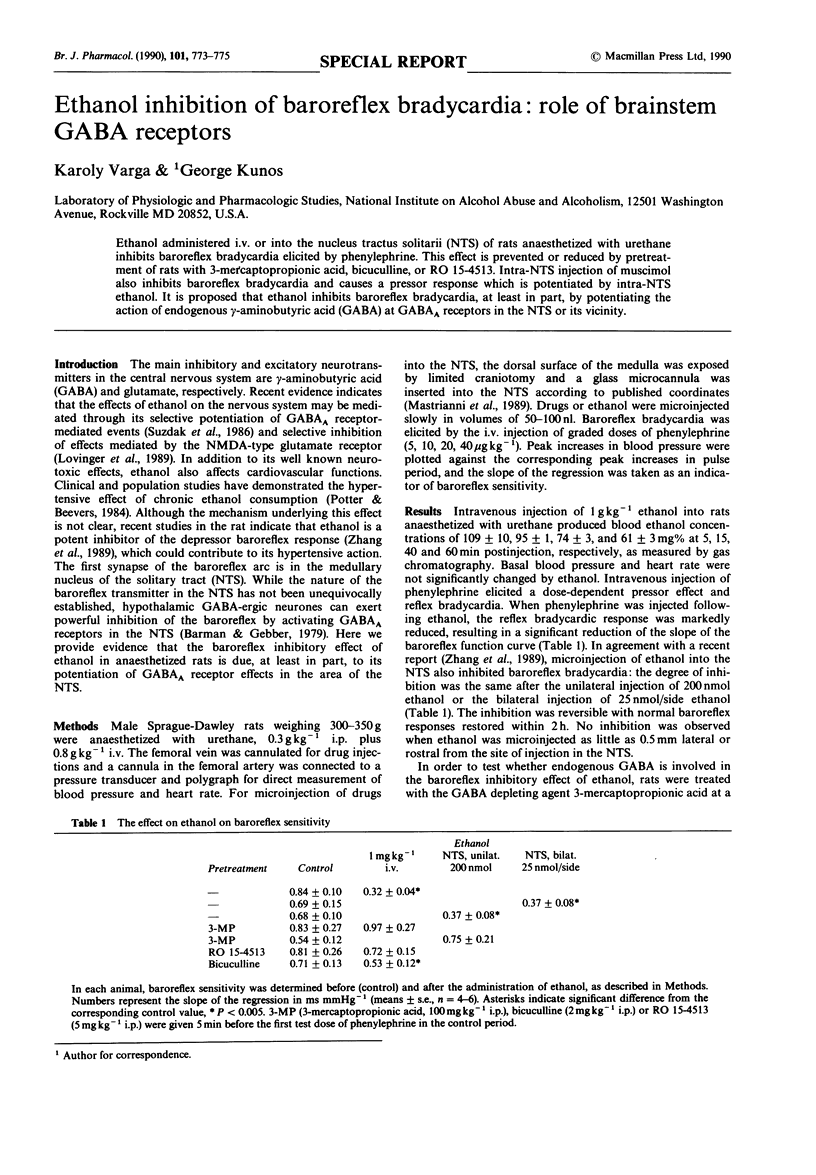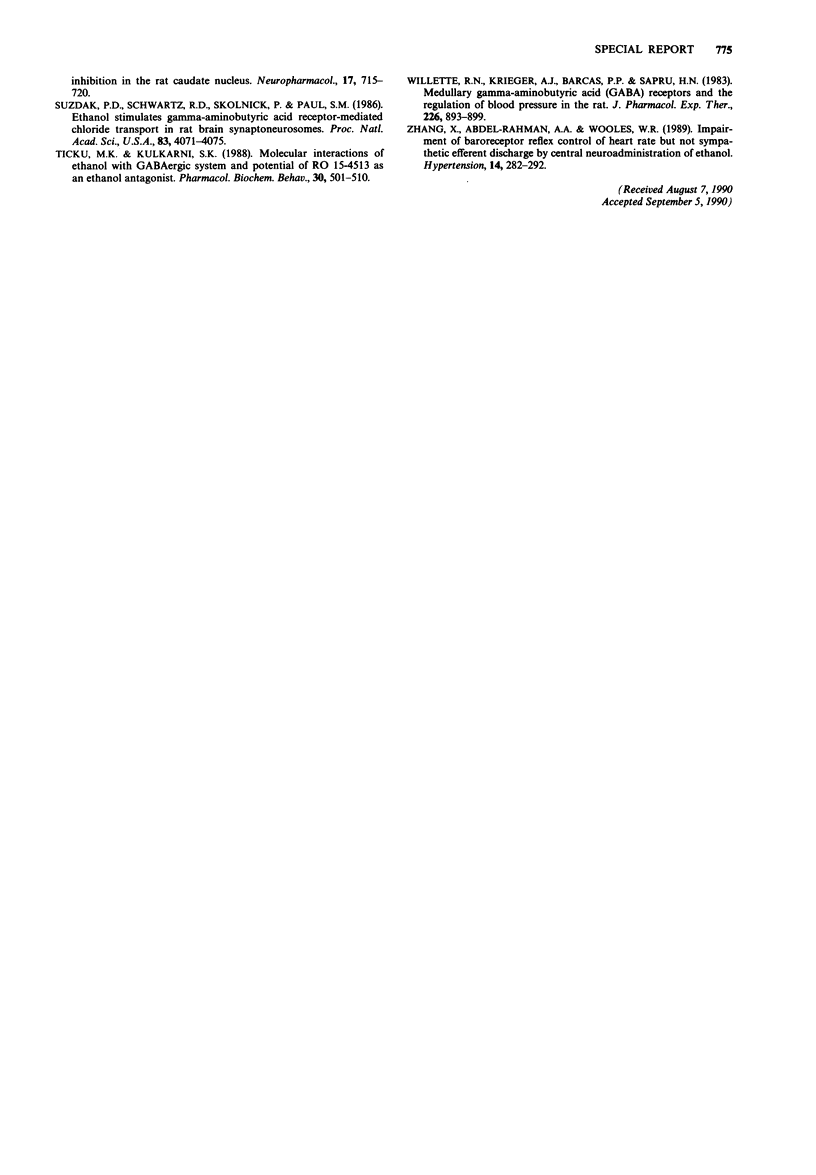Abstract
Ethanol administered i.v. or into the nucleus tractus solitarii (NTS) of rats anaesthetized with urethane inhibits baroreflex bradycardia elicited by phenylephrine. This effect is prevented or reduced by pretreatment of rats with 3-mercaptopropionic acid, bicuculline, or RO 15-4513. Intra-NTS injection of muscimol also inhibits baroreflex bradycardia and causes a pressor response which is potentiated by intra-NTS ethanol. It is proposed that ethanol inhibits baroreflex bradycardia, at least in part, by potentiating the action of endogenous gamma-aminobutyric acid (GABA) at GABAA receptors in the NTS or its vicinity.
Full text
PDF


Selected References
These references are in PubMed. This may not be the complete list of references from this article.
- Barman S. M., Gebber G. L. Picrotoxin- and bicuculline-sensitive inhibition of cardiac vagal reflexes. J Pharmacol Exp Ther. 1979 Apr;209(1):67–72. [PubMed] [Google Scholar]
- Leone C., Gordon F. J. Is L-glutamate a neurotransmitter of baroreceptor information in the nucleus of the tractus solitarius? J Pharmacol Exp Ther. 1989 Sep;250(3):953–962. [PubMed] [Google Scholar]
- Lovinger D. M., White G., Weight F. F. Ethanol inhibits NMDA-activated ion current in hippocampal neurons. Science. 1989 Mar 31;243(4899):1721–1724. doi: 10.1126/science.2467382. [DOI] [PubMed] [Google Scholar]
- Mastrianni J. A., Palkovits M., Kunos G. Activation of brainstem endorphinergic neurons causes cardiovascular depression and facilitates baroreflex bradycardia. Neuroscience. 1989;33(3):559–566. doi: 10.1016/0306-4522(89)90408-9. [DOI] [PubMed] [Google Scholar]
- Potter J. F., Beevers D. G. Pressor effect of alcohol in hypertension. Lancet. 1984 Jan 21;1(8369):119–122. doi: 10.1016/s0140-6736(84)90060-6. [DOI] [PubMed] [Google Scholar]
- Roberts F., Taberner P. V., Hill R. G. The effect of 3-mercaptopropionate, an inhibitor of glutamate decarboxylase, on the levels of GABA and other amino acids, and on presynaptic inhibition in the rat cuneate nucleus. Neuropharmacology. 1978 Sep;17(9):715–720. doi: 10.1016/0028-3908(78)90085-0. [DOI] [PubMed] [Google Scholar]
- Suzdak P. D., Schwartz R. D., Skolnick P., Paul S. M. Ethanol stimulates gamma-aminobutyric acid receptor-mediated chloride transport in rat brain synaptoneurosomes. Proc Natl Acad Sci U S A. 1986 Jun;83(11):4071–4075. doi: 10.1073/pnas.83.11.4071. [DOI] [PMC free article] [PubMed] [Google Scholar]
- Ticku M. K., Kulkarni S. K. Molecular interactions of ethanol with GABAergic system and potential of RO15-4513 as an ethanol antagonist. Pharmacol Biochem Behav. 1988 Jun;30(2):501–510. doi: 10.1016/0091-3057(88)90487-x. [DOI] [PubMed] [Google Scholar]
- Willette R. N., Krieger A. J., Barcas P. P., Sapru H. N. Medullary gamma-aminobutyric acid (GABA) receptors and the regulation of blood pressure in the rat. J Pharmacol Exp Ther. 1983 Sep;226(3):893–899. [PubMed] [Google Scholar]
- Zhang X., Abdel-Rahman A. A., Wooles W. R. Impairment of baroreceptor reflex control of heart rate but not sympathetic efferent discharge by central neuroadministration of ethanol. Hypertension. 1989 Sep;14(3):282–292. doi: 10.1161/01.hyp.14.3.282. [DOI] [PubMed] [Google Scholar]


